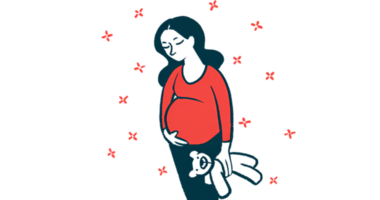Remote coaching plus online tips ease stress of MS caregiving
Pilot study into way of supporting carers' mental and emotional well-being

Remote coaching sessions to support the mental and emotional health of informal multiple sclerosis (MS) caregivers, coupled with online information, showed significant benefits after four months, according to a pilot study.
These coaching sessions — known as psychoeducation — focused on information, support, and strategies for caring and planning the future, and the website provided caregivers with disease-related information and strategies for caring for patients and themselves.
A combined approach also significantly improved measures of stress, which was not observed in a group given access to the website only.
“Improving [caregivers] emotional and mental health will not only improve their physical and emotional quality of life, but will improve the care received and the quality of life of their loved ones with MS as well,” the researchers wrote.
The study, “Effect of 2-Arm Intervention on Emotional Outcomes in Informal Caregivers of Individuals With Multiple Sclerosis: A Randomized Pilot Study Trial,” was published in the International Journal of MS Care.
Informal caregivers key members of an MS patient’s support team
Of the roughly one million people living with MS in the U.S., more than half receive support from informal caregivers — those giving care without pay or special training — such as a family member or a friend. These are key members of the care team, providing most of at-home care needs, such as transportation, personal care, and emotional support, the researchers, at institutes in the U.S. and Canada, noted.
However, that added burden can affect their quality of life, with reports of high levels of anxiety, distress, and depression that tend to increase with disease progression and higher patient care needs.
Caregivers also report frustration with a lack of reliable information on managing patient care or finding support for their own emotional and physical needs.
Psychoeducational programs providing information and support have shown efficacy in easing anxiety and depression in caregivers of people with other diseases, like cancer or ALS, the study noted.
“However, few interventions have focused solely on reducing depression, anxiety, stress, and distress in informal caregivers of individuals with MS and a majority have focused solely on spousal caregivers,” its researchers wrote.
To know more, scientists at Case Western Reserve University in Ohio launched a pilot trial (NCT04662008) to examine the effectiveness of remotely delivered interventions aiming at these issues among informal MS caregivers.
A total of 151 caregivers, with an average age of 52 or 53, enrolled in the study from March to August 2021. They were randomly assigned to four months of either website and coaching sessions (76 caregivers), or given access to the website only (75 caregivers).
The groups were balanced in terms of caregiver characteristics and the clinical characteristics of their MS patients. Caregivers were mainly a patient’s spouse or partner (81.6%) and while most (50%) reported spending 20 or fewer hours each week giving care, 39.5% reporting spending 41 or more hours each week doing so. Patients had been living with the disease for about 12 to 13 years, and most had relapsing-remitting MS.
Pilot trial of 4 coaching sessions and website information vs. website info only
People in the combined treatment group received four personalized coaching sessions by two social workers, via videoconference or telephone. The sessions focused on identifying caregivers’ needs for information and support, strategies for caring for the MS patient and themselves, and planning for the future.
They also had access to a study-designed website, consisting of text, links, and videos dedicated to information on the disease, practical strategies for caring for an MS patient, as well as self-care and planning strategies. Caregivers in the website-only group had access to the same website.
Participants’ overall negative emotions were measured at baseline (the study’s start), as well as immediately and six weeks after the intervention, using the Depression Anxiety Stress Scales (DASS). The scale has three subscales of 14 items each to evaluate the presence and intensity of depression, anxiety, and stress.
At baseline, 33.8% of the caregivers had elevated stress scores, 31.1% elevated depression scores, and 19.2% had elevated anxiety scores. Moreover, 41.7% of the caregivers self-reported elevated psychological distress. These levels, the researchers reported, “fell above clinical thresholds” and showed rates similar to those reported in previous studies of MS caregivers.
Gains seen in emotional and mental health with combined approach
Significant improvements in overall DASS scores were seen in caregivers with coaching plus website access, with these scores falling from 23.9 at baseline to 17.2 immediately after the intervention and 16.7 at the six-week follow-up. In contrast, those with website-only access showed no significant improvements at either time point.
Those in the combined approach group also experienced a significant reduction in stress immediately after the intervention and six weeks later, while such an improvement in the website group was observed only at the six-week mark.
Based on validated cutoffs for stress classification from normal to extremely severe, the researchers considered a reduction of 10 or seven points as relevant changes in thresholds. A reduction of 10 points would be equivalent to dropping one or two categories in stress severity, while a seven-point reduction would be equivalent to dropping one category.
Results showed that 18.8% of the caregivers given website plus coaching experienced a 10-point reduction in stress scores, compared with 7.1% of those on the website-only group. Reductions of seven points or more were seen in 27.5% and 15.7% of caregivers in the combined and website-only groups, respectively.
These results “indicated that the website plus telecoaching demonstrated greater effectiveness at reducing the overall composite emotion and stress subscale scores,” the researchers wrote.
The fact that caregivers were very homogenous in terms of race (89% were white) and income (66% had an annual income higher than $50,000) limited the generalizability of the results, they added.
Further studies, they wrote, should test the intervention in larger and more diverse groups of MS caregivers to determine if benefits seen here can be generalized to a broader caregiver population.







